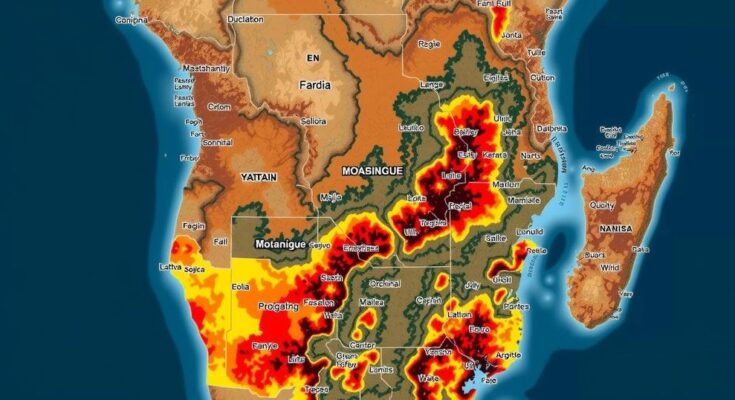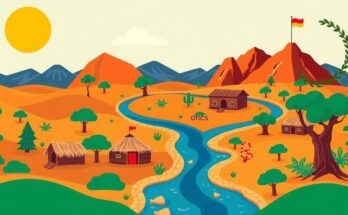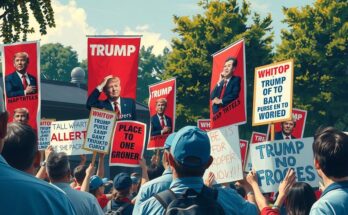Civil unrest in Mozambique has escalated following the contested election of Daniel Chapo, leading to widespread protests and civilian casualties. Opposition leader Venancio Mondlane is advocating for ongoing demonstrations, while police crackdowns have resulted in significant destruction and challenges at the border with South Africa. The situation is harming regional trade, prompting the SADC to convene an extraordinary summit to address the crisis and consider mediation efforts.
Leaders from the Southern African Development Community (SADC) are set to convene for a summit addressing the increasing unrest in Mozambique, which has resulted in numerous civilian deaths and injuries following the appointment of Daniel Chapo as president by the ruling Frelimo party. The announcement of Chapo’s election, which garnered over 70% of the vote, has ignited protests led by Venancio Mondlane, leader of the opposition PODEMOS party, who is urging continued demonstrations against the election results. Law enforcement has responded to the protests with excessive force, compelling Mondlane to seek refuge in a neighboring country, reportedly South Africa, due to threats to his life. Analysts such as Willem Els, affiliated with the Institute for Security Studies, reported significant destruction caused by pro-Mondlane protesters, including the burning of a border post and the looting of trucks at the Lebombo border with South Africa. In response to the unrest, South Africa’s border management authority has resumed operations, although they discourage South African nationals from traveling to Mozambique owing to the volatile circumstances. Kage Barnette, a cross-border analyst, highlighted the economic ramifications of the unrest, estimating that it costs the region millions, particularly impacting the transportation of key commodities such as chrome and fuel along the trade corridor. As SADC leaders face criticism for their delayed response, they will meet in Harare for five days to seek solutions, potentially involving mediation by a panel of former heads of state to facilitate dialogue between the government and opposition factions.
The unrest in Mozambique follows the controversial election of Daniel Chapo as president, which has been met with significant public dissent. Accusations of electoral misconduct have fueled protests spearheaded by the opposition party PODEMOS, leading to violent confrontations with law enforcement. This turmoil not only affects the political stability of Mozambique but also has dire economic consequences for the Southern African region, disrupting trade and risking the safety of individuals traversing volatile areas. As SADC convenes to address these issues, the emphasis will likely be on fostering communication among conflicting parties while restoring order.
In conclusion, the unrest in Mozambique has escalated into a severe humanitarian and economic crisis, with significant impacts on both the local population and regional trade. The upcoming SADC summit represents a crucial opportunity for leaders to strategize collaborative resolutions, restore peace, and ensure the safety of citizens and cross-border trade operations. As the situation continues to unfold, the involvement of former leaders may serve as a pivotal element in resolving the ongoing conflict between the government and opposition.
Original Source: www.voanews.com




